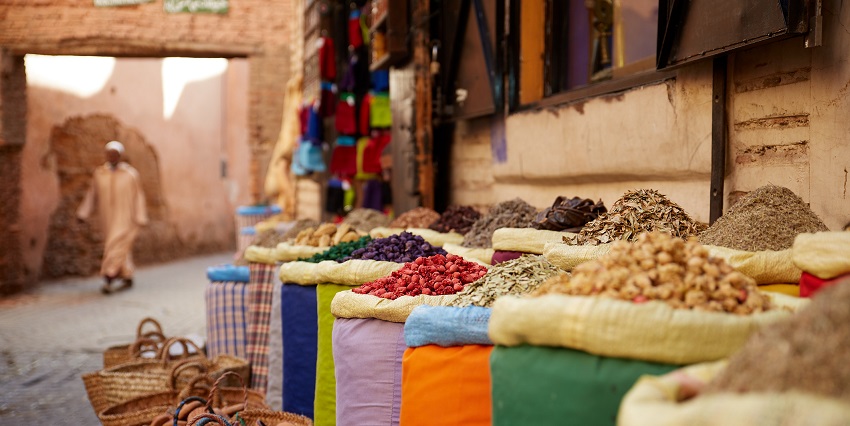
Launched by the Grameen Crédit Agricole Foundation and Crédit Agricole SA in June 2018, Solidarity Banker is a skills volunteering programme open to all Crédit Agricole group employees for microfinance institutions or impact businesses supported by the Foundation. Discover the Column of Sarah Belbachir, Solidarity Banker of Crédit Agricole SA.
_____________________
Solidarity Banker… but, why?
The first time I spoke to my acquaintances about the Solidarity Bankers programme, I was told «banker and solidarity … isn’t that a bit contradictory?» For many, these two words have a hard time resonating in unison. However, when I discovered the Solidarity Bankers programme, I met passionate people, sincere ambitions and concrete actions. Far from being fine words, the programme won me over by the values ??it inspires and its willingness to work directly on the ground.
So I immediately applied for a mission to strengthen the anti-money laundering and ant-terrorism financing system (AML-ATF) of Al Karama, an institution funded by the Grameen Crédit Agricole Foundation and Crédit du Maroc that offers microloans to people excluded from the traditional banking system, in particular women.
Very soon after applying, I had confirmation that my application had been accepted. My mission therefore began in Montrouge, at the premises of the Grameen Crédit Agricole Foundation for the preparation phase. With the help of Edouard, Violette and Carolina (1), we defined the schedule and the objectives. They introduced me to the main concepts of microfinance, and provided me with specific contextual elements on Al Karama, on the Moroccan economy and the microfinance sector in Morocco.
Take-off to Rabat!
On July 13, I finally flew to Rabat. For ten days, I was going to devote myself to a topic that was part of my area of ??expertise, but in a different sector, in a different size structure and in a cultural context different from my daily life.
The first two days were devoted to raising awareness among top management on the risks linked to AML-ATF and how to prevent them. AML-ATF training was organised by Crédit du Maroc teams within the framework of a skill-sharing patronage. It was an opportunity to exchange views on Crédit du Maroc’s VSE / SME financing practices and understand the market in which Moroccan microfinance institutions will diversify.
The discussions that followed with Al Karama’s team allowed me to familiarise myself with the functioning of the institution, to identify the strengths in terms of AML-ATF and the elements needing strengthening.
The next step was to elaborate a more detailed action plan, so that Al Karama integrates its AML-ATF obligations gradually and according to priorities. In collaboration with Edouard Sers of the Grameen Crédit Agricole Foundation, who joined me on this part of the mission, we thus defined precise recommendations, with one manager per action and a three-year implementation schedule. The challenge was to draw up a realistic and achievable action plan for Al Karama, in light of its ressources and its workforce.
The action plan was very well received by the Al Karama Executive Committee to which we presented it on the last day of the mission. The next step is now in the hands of Al Karama, who will implement this roadmap.
Unforgettable meetings
My mission was punctuated by two visits that marked my experience. Al Karama organised visits to agencies and clients, one in urban areas and the other one in rural areas. The first took place in the city of Temara, on the outskirts of Rabat. After some discussions with the branch manager and loan officers, we visited a client who received a microcredit in his traditional Moroccan clothing store. This first visit allowed me to better understand the functioning of a microcredit agency and to see how the procedures are actually applied in the field.
The second visit took place in Larache, in the north of Morocco. We first visited a rural agency which offers agricultural services to the inhabitants of the region. We went to a watermelon and peanuts field to meet with a farmer who has received a microcredit to develop its activity with a larger field. I was able to confirm the impact of microcredit on the development of small farming and the strengthening of rural economies.
These meetings allowed me to understand microfinance as closely as possible and to see what concrete finance can achieve. But above all, these meetings have been an unforgettable human experience.
This was just a taste … I came back to Paris with the desire to get further involved.